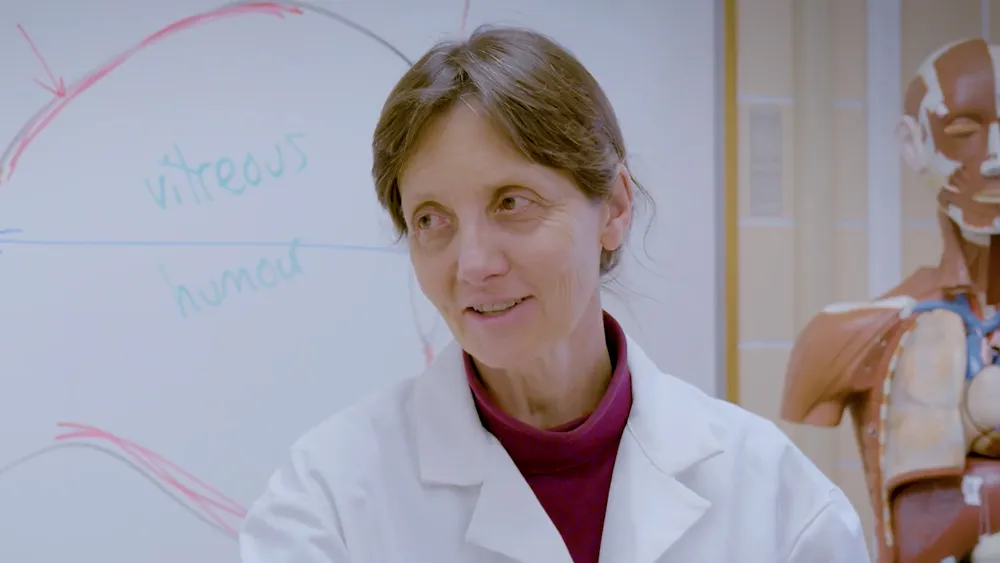Heading 1
Heading 2
Heading 3
Heading 4
Heading 5
Heading 6
Lorem ipsum dolor sit amet, consectetur adipiscing elit, sed do eiusmod tempor incididunt ut labore et dolore magna aliqua. Ut enim ad minim veniam, quis nostrud exercitation ullamco laboris nisi ut aliquip ex ea commodo consequat. Duis aute irure dolor in reprehenderit in voluptate velit esse cillum dolore eu fugiat nulla pariatur.
Block quote
Ordered list
- Item 1
- Item 2
- Item 3
Unordered list
- Item A
- Item B
- Item C
Bold text
Emphasis
Superscript
Subscript
About This Simulation
Learn how to perform Benedict’s test for reducing sugars on a variety of food samples. Predict which samples contain reducing sugars and find out how your predictions compare to your results!
Learning Objectives
- Process a food sample through Benedict’s test for reducing sugars
- Briefly describe the reaction mechanism that permits the detection of reducing sugars
- Interpret the results of Benedict's test
About This Simulation
Lab Techniques
- Reducing sugars
- Positive and negative controls
- Benedict's test
Related Standards
- HS-PS2-6
Learn More About This Simulation
Practice makes perfect! In this simulation you will learn how to perform Benedict’s test for reducing sugars on a variety of food samples. You will use your existing knowledge of food macromolecules to predict which samples contain reducing sugars. Dr. One will then guide you in processing the food samples through Benedict’s test. How will your predictions compare to your results?
Make a prediction
Start by getting familiar with the apparatus on your workbench and setting up the heated water bath. Now that you’re set up, use your existing knowledge to predict which food samples will contain reducing sugars. Don’t be afraid to make mistakes. Later you will compare your predictions to your results.
Perform Benedict’s test
Learn how to process food samples through Benedict’s test as if you were in a lab! With step by step guidance from Dr. One, you will process the food samples through Benedict’s test and generate some colorful results. Combine the theory of Benedict’s test with your observations to interpret your results and discover which food samples contain reducing sugars.
Results vs. Prediction
The final step is to compare your results to your predictions. Did your results match the predictions? Are there any results that are surprising?
Boost STEM Pass Rates
Boost Learning with Fun
75% of students show high engagement and improved grades with Labster
Discover Simulations That Match Your Syllabus
Easily bolster your learning objectives with relevant, interactive content
Place Students in the Shoes of Real Scientists
Practice a lab procedure or visualize theory through narrative-driven scenarios


For Science Programs Providing a Learning Advantage
FAQs
Find answers to frequently asked questions.
Heading 1
Heading 2
Heading 3
Heading 4
Heading 5
Heading 6
Lorem ipsum dolor sit amet, consectetur adipiscing elit, sed do eiusmod tempor incididunt ut labore et dolore magna aliqua. Ut enim ad minim veniam, quis nostrud exercitation ullamco laboris nisi ut aliquip ex ea commodo consequat. Duis aute irure dolor in reprehenderit in voluptate velit esse cillum dolore eu fugiat nulla pariatur.
Block quote
Ordered list
- Item 1
- Item 2
- Item 3
Unordered list
- Item A
- Item B
- Item C
Bold text
Emphasis
Superscript
Subscript
Labster can be integrated within a school's LMS (Learning Management System), and students can access it like any other assignment in their LMS. If your Institution does not choose an LMS integration, students will log in to Labster's Course Manager once they have an account created. Your institution will decide the access method during the sales process.
Labster is available for purchase by instructors, faculty, and administrators at education institutions. Purchasing our starter package, Labster Explorer, can be done using a credit card if you are located in the USA, Canada, or Mexico. If you are outside of North America or are choosing a higher plan, please speak with a Labster sales representative. Compare plans.
Labster simulations are created by real scientists and designed with unparalleled interactivity. Unlike point and click competitors, Labster simulations immerse students and encourage mastery through active learning.
Labster supports a wide range of courses at the high school and university level across fields in biology, chemistry and physics. Some simulations mimic lab procedures with high fidelity to train foundational skills, while others are meant to bring theory to life through interactive scenarios.


















